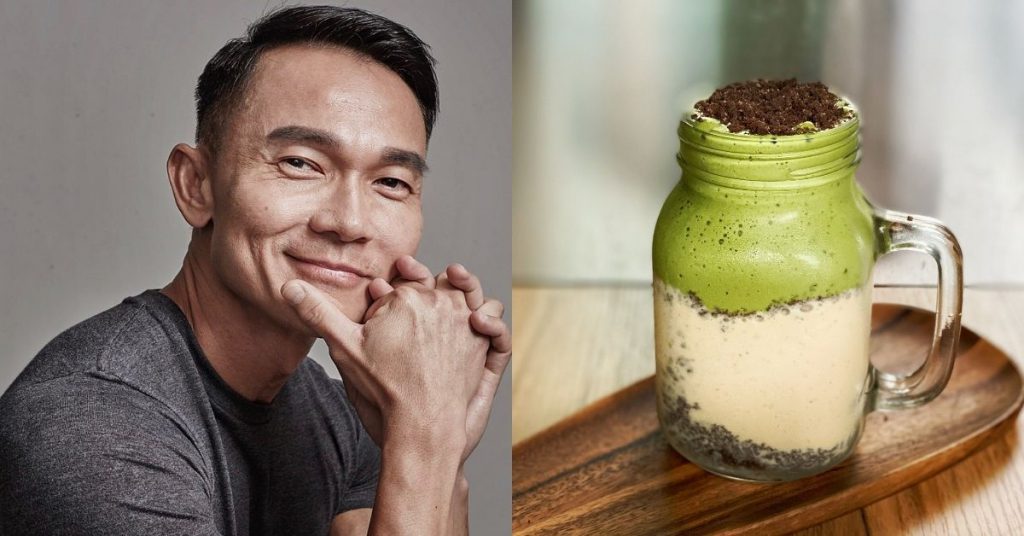When Randall Wong had to stall operations at his Damansara Uptown (DU) boutique gym during the pandemic, his priority wasn’t to sustain the small business but to pursue a new venture for income.
He scoured the news for the pandemic’s effects in the health and fitness sector and came across the spike in awareness for nutrition.
Though he had no expertise in cooking healthy meals, he was knowledgeable in making protein shakes, something that also catered to the health-conscious. In August 2020, after over 3 decades of prepping the beverage daily for himself, he began making it for others through his new venture, Shakeasy Bar (Shakeasy), a cafe within the gym.
Shaking up the smoothie industry
On the surface, Shakeasy looks like another juice bar. Dig a little deeper and you’ll notice that all beverages offered are plant-based with soy protein isolate in them. Often used in the fitness world to gain muscle mass, protein isolate is a dietary supplement extracted from whey and is generally considered lactose-free.
While the local protein shakes market is by no means a blue ocean, protein smoothies are still harder to find. Boost Juice has its own range of protein smoothies, but other than that, there is a notable lack of players basing their whole business on plant-based protein milkshakes.
Protein shakes out there primarily target avid gym-goers working to bulk up. But as those aren’t always plant-based and vegan-friendly, Randall saw the opportunity for Shaekeasy to cater to a market beyond fitness buffs.
Other than being a healthy snack option, he explained that Shakeasy’s products can also be taken as a meal replacement. It’d mainly be for workers who sacrifice nutrition to accommodate their busy lifestyles, as the founder had once experienced before.
As with any other liquid-based meal replacements, they should replace no more than 1 meal a day. It’s best to still consume regular food for your other meals to maintain health. Though the shakes do provide nutrients that may be lacking in traditional meals, the opposite is also true. Thus, a balance of both is necessary.
Planning for a post-pandemic future
Randall reported that while the R&D for Shakeasy’s smoothies was relatively simple as the business doesn’t produce its own ingredients, the cost of sourcing raw materials from third parties drove up the cost.
Starting Shakeasy in his gym meant spending RM70K on the setup plus renovations, funded by Randall’s business partners. While much lower than the initial capital injected to kick off his gym, it’s still a high investment for a business riding a wellness trend that may not appeal to the mass market.
However, if Randall can sustain Shakeasy’s presence to cater to post-pandemic gym-goers around DU, which has boutique fitness centres and a gym chain inside the mall, his venture should maintain relevance. Additionally, Shakeasy has the advantage of being surrounded by many offices, enabling workers to grab one of his shakes as a meal replacement for convenience occasionally.
As dine-ins remain closed at the moment, Shakeasy is focusing on delivery channels and social media to create its brand presence. Primarily targeting millennials, he markets the brand mainly through Facebook ads, then Instagram and Google.
With this approach, he’s sold over 1,800 cups of smoothies from January to July 2021, with 65% of them being returning customers from the target market. Randall also shared his gratitude for his existing gym members who made up Shakeasy’s client base from day 1.
Pushing for rapid expansion
Something that caught me off guard about Shakeasy was the fact that it’s only a year old, yet already has 2 outlets outside of DU. Randall explained that the shops in Bandar Sri Permaisuri and Sungai Besi are operated by independent owners who took interest in Shakeasy’s business model.
“The business model attracted them to venture into Shakeasy Bar as it has a low entry start-up cost and relatively easy learning curve,” Randall said, adding that he doesn’t charge the other owners listing or commission fees.
On top of that, Shakeasy will provide support, product knowledge, and complimentary training to interested owners wanting to sell the protein smoothies under the brand. These steps are standard for licensing/franchising deals in the industry to maintain product consistency.
While it presents a quick opportunity to expand, Shakeasy would have to be careful when choosing who to partner with as poor management may harm the overall reputation of the business. Moreover, as plant-based smoothies may only appeal to a niche market, location matters for Shakeasy’s success.
Randall isn’t too worried though, and he’s confident in the current locations. “Both Bandar Sri Permaisuri and Chan Sow Lin, Sungai Besi are mature markets, but many around are young working adults, and a radius of 10km [for food deliveries] is already a good coverage.”
The founder also ensures marketing is consistent and manages the social media for all 3 outlets himself. Once the pandemic is over with dine-ins and gyms resuming operations, Randall plans to run Shakeasy as a cafe within his DU gym once it’s safe again. As for further expansions, he shared that such discussions are still brewing in the background with potential entrepreneurs.
Featured Image Credit: Randall Wong, founder of Shakeasy Bar
